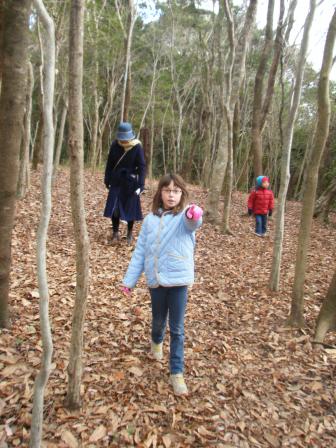Article
Jan Lauwereyns on this year’s festival theme
Searching for mushrooms

May 23, 2012
And: “Search as a process . . . has the same bearing on the complete work as wandering through the forest with a basket in search of mushrooms has on the basketful of mushrooms when you have found them.”
Thus Tarkovsky.
And us?
We agree, yes, chemically speaking, that the molecules we get from the mushrooms are independent of the trajectory we make while searching for them.
But context colours perception. Say we know the mushrooms are from an overgrown grave of a genocide victim, somewhere in a forest in Srebrenica. How will they taste?
There’s more. Say we find beautiful mushrooms in a pristine part of the same forest in Srebrenica – no graves; somehow, miraculously, untouched by humans. We will want to remember the place. We might wish to visit it again, looking for more mushrooms. We do well to remember the outlook of the place, too – the trees, the soil, etc. These features can serve as search templates, to find other places like it.
The real question – which Tarkovsky avoids – is how we know when to stop searching. When do we know we’ve found enough mushrooms? Aren’t there always even more beautiful ones out there?
The question sounds rhetorical, but we must answer it: Yes, there’s always more and better; the problem is we don’t have time to keep looking. At some point we must stop, or we won’t be able to eat.
The proof is in the pudding. If the mushrooms taste good, it means we must have found what we were looking for. If it works, it is done – and it’s time for a new experiment.
The incomplete is in the middle – of the search, of the process. What can we learn from it?
Andrei Tarkovsky observed, “Nothing could be more meaningless than the word ‘search’ applied to a work of art. It covers impotence, inner emptiness, lack of true creative consciousness, petty vainglory.”And: “Search as a process . . . has the same bearing on the complete work as wandering through the forest with a basket in search of mushrooms has on the basketful of mushrooms when you have found them.”
Thus Tarkovsky.
And us?
We agree, yes, chemically speaking, that the molecules we get from the mushrooms are independent of the trajectory we make while searching for them.
But context colours perception. Say we know the mushrooms are from an overgrown grave of a genocide victim, somewhere in a forest in Srebrenica. How will they taste?
There’s more. Say we find beautiful mushrooms in a pristine part of the same forest in Srebrenica – no graves; somehow, miraculously, untouched by humans. We will want to remember the place. We might wish to visit it again, looking for more mushrooms. We do well to remember the outlook of the place, too – the trees, the soil, etc. These features can serve as search templates, to find other places like it.
The real question – which Tarkovsky avoids – is how we know when to stop searching. When do we know we’ve found enough mushrooms? Aren’t there always even more beautiful ones out there?
The question sounds rhetorical, but we must answer it: Yes, there’s always more and better; the problem is we don’t have time to keep looking. At some point we must stop, or we won’t be able to eat.
The proof is in the pudding. If the mushrooms taste good, it means we must have found what we were looking for. If it works, it is done – and it’s time for a new experiment.
© Jan Lauwereyns
Sponsors












Partners
LantarenVenster – Verhalenhuis Belvédère

